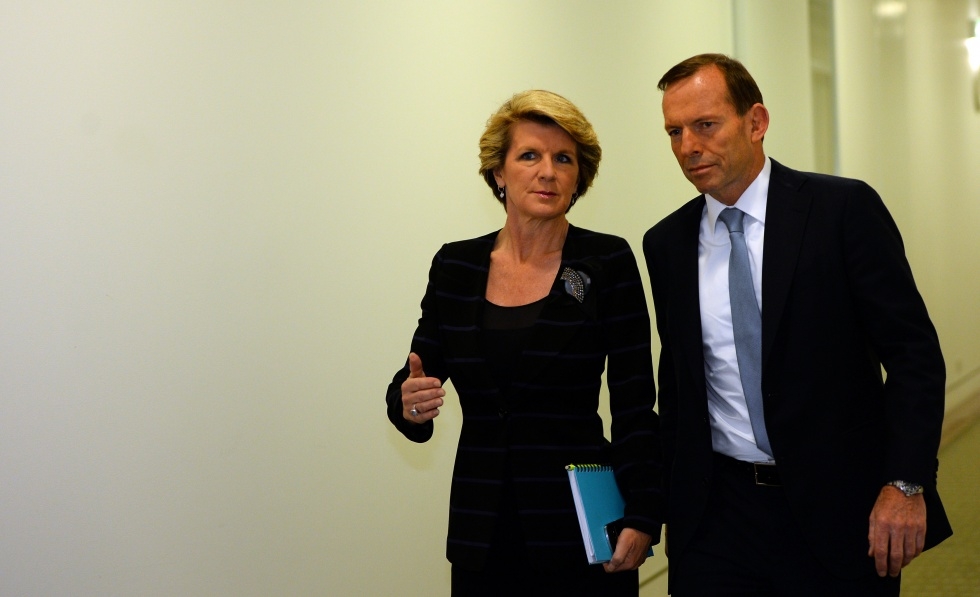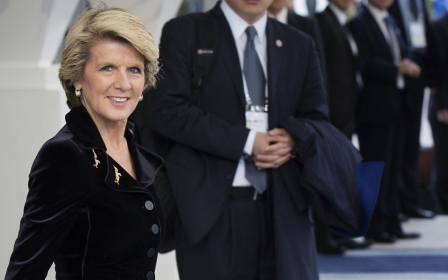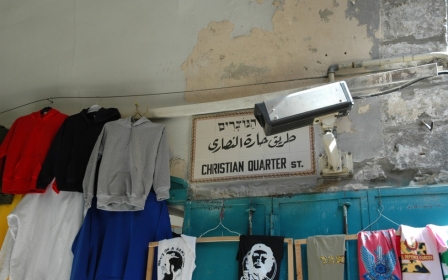Australian minister to meet ambassadors over E. Jerusalem row

But the decision has sparked fury in the Arab world, and on Thursday 18 diplomats from countries including Egypt, Saudi Arabia and Indonesia protested to Australia's Department of Foreign Affairs in Canberra.
Israel seized East Jerusalem during the 1967 Six-Day War and later annexed it, in a move never recognised by the international community.
Abbott, speaking in Houston as part of an official trip to the United States, said Australia was "very happy to clarify the position and on trade".
"My understanding is that there is going to be a meeting between some of the ambassadors and Foreign Minister (Julie) Bishop in a couple of days' time," the prime minister said.
"We are very happy to clarify the position and on trade. People trade with us because we are a good trading partner... Nothing that has happened in the last couple of days could detract from that."
The head of the Palestinian delegation to Canberra warned Friday that Australia could face trade sanctions by Arab nations over the new stance.
Australia's export trade with the Middle East accounts for billions of dollars annually, particularly in wheat and meat, with Qatar and Jordan major markets for live sheep.
Abbott said there was "absolutely no change" to Australia's policy on the Israeli-Palestinian conflict, and the shift on East Jerusalem was "simply a terminological clarification".
"We strongly support a two-state solution," he said. "We are giving, I think, Aus$56 million ($53 million) in aid this year to Palestine. No change in policy."
Israel has hailed the Australian move as "refreshing".
The move also seems in keeping with comments made by Foreign Minister Julie Bishop earlier this year. In a January interview with the Times of Israel, Bishop said she was doubtful about the illegality of settlement-building in the West Bank.
“I don’t think it’s helpful to prejudge the settlement issue if you’re trying to get a negotiated solution,” she told the paper. “And by deeming the activity as a war crime, it’s unlikely to engender a negotiated solution.”
Her comments were condemned by Palestinian peace negotiator Saeb Erekat in an editorial in the Sydney Morning Herald.
"If Bishop wanted to show solidarity with an occupation that harms the rights of an occupied population, she did well," Erekat wrote. "I would be unsurprised if her next step was a cup of coffee with her Israeli counterpart, Avigdor Lieberman, in the illegal settlement of Nokdim, where he lives, in land stolen from Bethlehem."
The previous Labor government in Australia had a mixed relationship with Israel.
Although previous Prime Minister Julia Gillard was a staunch supporter of the country, the Labor Party faced a split in its ranks during the UN vote on whether to recognise Palestine as a non-member observer state in 2012, with rebel ministers calling for recognition.
Eventually, the government abstained on the vote, although Gillard’s original intention had been to vote against.
The Palestinians claim Arab East Jerusalem as the capital of their promised state.
The international community views Israeli construction on land seized in 1967, including East Jerusalem, as illegal and a major obstacle to a peace agreement.
Bishop on Sunday blamed the opposition Labor Party for the uproar, telling Ten News it was a "complete and utter overreaction".
New MEE newsletter: Jerusalem Dispatch
Sign up to get the latest insights and analysis on Israel-Palestine, alongside Turkey Unpacked and other MEE newsletters
Middle East Eye delivers independent and unrivalled coverage and analysis of the Middle East, North Africa and beyond. To learn more about republishing this content and the associated fees, please fill out this form. More about MEE can be found here.




